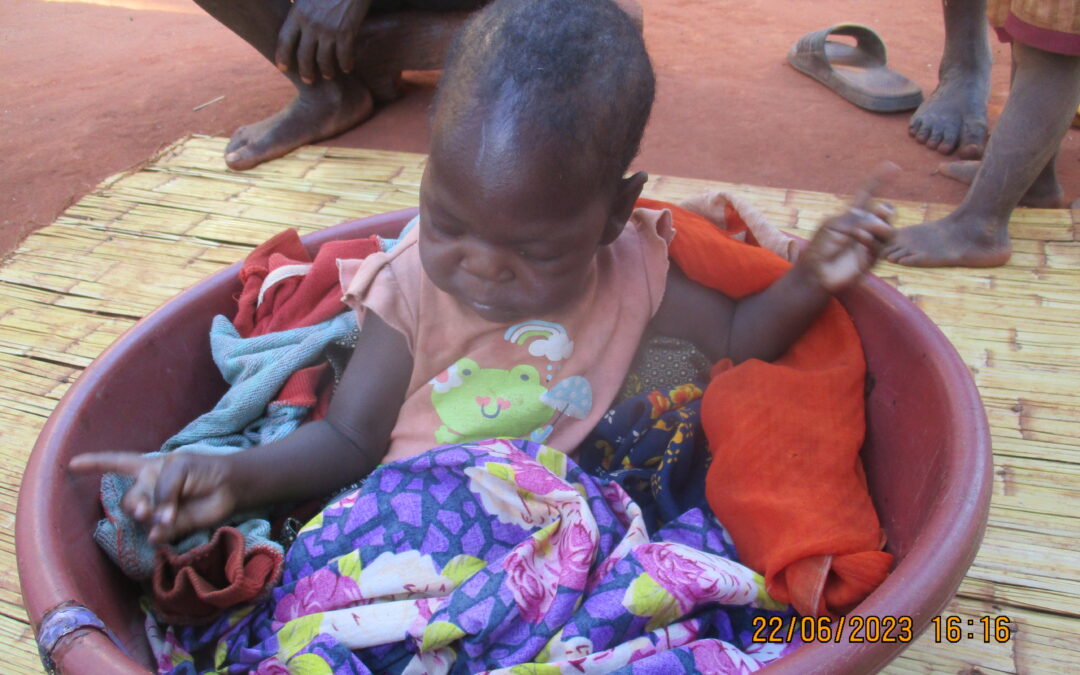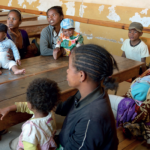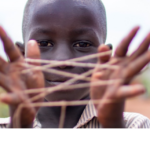PATH Mozambique and ADEMO (a local disability organisation) have adapted the Ubuntu programme for rural families in northern Mozambique. In 2022–2023, nearly 200 caregivers, representing 65% of ADEMO-supported families, joined Ubuntu sessions in Monapo District, and 60% completed half or more sessions.
Afterward, we assessed the programme’s impact on parenting knowledge, practices, and caregiver connections. Thirty-five caregivers (15 of children with cerebral palsy) who attended half or more sessions demonstrated learned practices, which we documented with photos. Many said they met most of their peers for the first time in the programme, with 70% continuing to meet outside of sessions, showing stronger peer networks.
Caregivers’ knowledge also grew: over 60% could identify risks for developmental delays, and unlike in 2021, when a quarter thought disabilities were caused by supernatural forces, only one caregiver still held that belief. Nearly 90% could name a locally available, protein-rich food like eggs, groundnuts, liver, or beans. This is important because 45% of children supported by ADEMO are malnourished.
Caregivers also adopted techniques to help children who can’t sit on their own, using items like plastic basins, “stuffed pants,” and their own bodies, which made it easier to complete chores and allowed children to play and interact with others.
“I learned how to make the child sit with support of ‘stuffed pants.’ The child is already sitting on his own and is eating by himself; is able to pick something with his hands and to play.” —Grandmother of a 5-year-old child with cerebral palsy
Over 90% of caregivers in the Ubuntu programme showed how they play and talk with their children, often using homemade toys. However, many tended to let children play alone, and interactive play was limited mostly to activities like kicking a ball or pretending to cook. Caregivers of children with cerebral palsy offered even fewer play activities, especially for children who couldn’t sit independently, with games limited to simple actions like bouncing or drumming.
Interactions between caregivers and children were warm and joyful, but conversations were brief and usually instructional. Only two caregivers engaged in open-ended conversations with their children, and such interactions with children with cerebral palsy were even rarer.
These insights from the pilot sessions are guiding ongoing improvements. ADEMO facilitators now review findings regularly to adjust training. In response, ADEMO is working with a partner to create low-cost positioning devices for children with cerebral palsy and has invited a speech therapist to train volunteers in supporting communication. Future goals include enhancing peer support to boost caregiver mental health and developing practical hygiene solutions for children with cerebral palsy.
This work was supported by the Conrad N. Hilton Foundation





